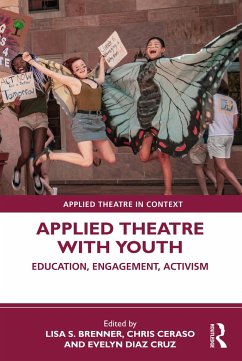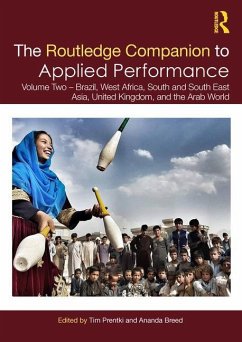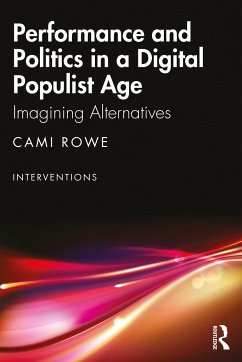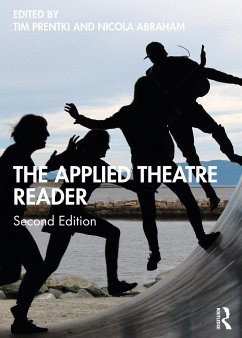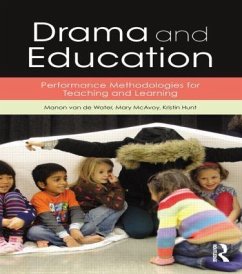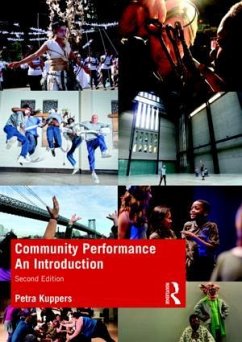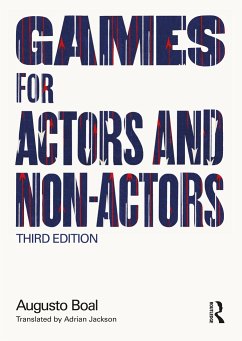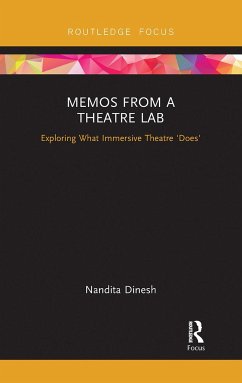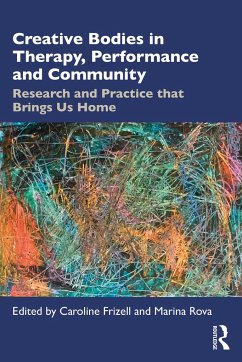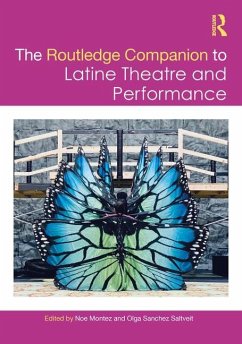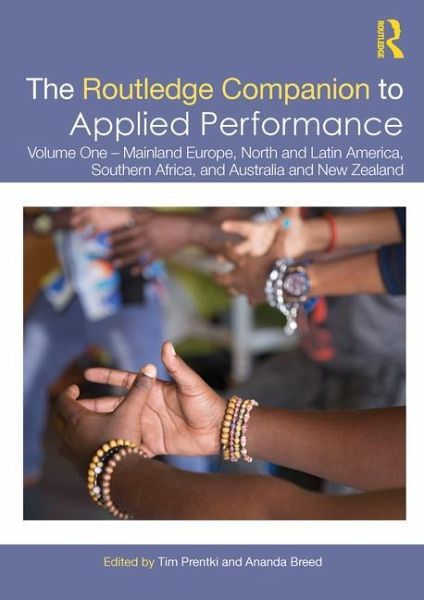
The Routledge Companion to Applied Performance
Volume One - Mainland Europe, North and Latin America, Southern Africa, and Australia and New Zealand
Herausgegeben: Prentki, Tim; Breed, Ananda
Versandkostenfrei!
Versandfertig in 6-10 Tagen
50,99 €
inkl. MwSt.
Weitere Ausgaben:

PAYBACK Punkte
25 °P sammeln!
The Routledge Companion to Applied Performance provides an in-depth, far-reaching and provocative consideration of how scholars and artists negotiate the theoretical, historical and practical politics of applied performance, both in the academy and beyond.These volumes offer insights from within and beyond the sphere of English-speaking scholarship, curated by regional experts in applied performance. The reader will gain an understanding of some of the dominant preoccupations of performance in specified regions, enhanced by contextual framing. From the dis(h)arming of the human body through da...
The Routledge Companion to Applied Performance provides an in-depth, far-reaching and provocative consideration of how scholars and artists negotiate the theoretical, historical and practical politics of applied performance, both in the academy and beyond.
These volumes offer insights from within and beyond the sphere of English-speaking scholarship, curated by regional experts in applied performance. The reader will gain an understanding of some of the dominant preoccupations of performance in specified regions, enhanced by contextual framing. From the dis(h)arming of the human body through dance in Colombia to clowning with dementia in Australia, via challenges to violent nationalism in the Balkans, transgender performance in Pakistan and resistance rap in Kashmir, the essays, interviews and scripts are eloquent testimony to the courage and hope of people who believe in the power of art to renew the human spirit.
Students, academics, practitioners, policy-makers, cultural anthropologists and activists will benefit from the opportunities to forge new networks and develop in-depth comparative research offered by this bold, global project.
These volumes offer insights from within and beyond the sphere of English-speaking scholarship, curated by regional experts in applied performance. The reader will gain an understanding of some of the dominant preoccupations of performance in specified regions, enhanced by contextual framing. From the dis(h)arming of the human body through dance in Colombia to clowning with dementia in Australia, via challenges to violent nationalism in the Balkans, transgender performance in Pakistan and resistance rap in Kashmir, the essays, interviews and scripts are eloquent testimony to the courage and hope of people who believe in the power of art to renew the human spirit.
Students, academics, practitioners, policy-makers, cultural anthropologists and activists will benefit from the opportunities to forge new networks and develop in-depth comparative research offered by this bold, global project.





